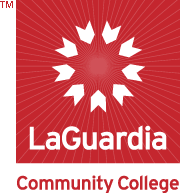
Publications and Research
Document Type
Article
Publication Date
2020
Abstract
Undergraduate biology education has changed over the past decade, incorporating an iterative and evidence-based approach. Many educational assessments have confirmed the effectiveness of integrating authentic research and open-ended inquiry into introductory biology courses, demonstrating a significant positive impact on students’ learning and attitude towards STEM majors. Despite these findings, only a handful of Biology instructors in 2-year colleges adopt this approach, and when adopted, most activities constitute a small fraction of these courses. Finding a feasible, sustainable, semester-long, and cost-effective strategy to incorporate authentic research in the curriculum which promotes integrated understanding of science and addresses socio-scientific issues, is a big challenge for both instructors and administrators at 2-year colleges. Here we present a unique model incorporating a semester-long authentic research-based set of laboratories in introductory Biology through which students investigate the water quality in areas close to their communities. Our approach is fully aligned with all five core components of an effective Course-based Undergraduate Research Experience according to CUREnet. The laboratories were developed to be fully incorporated into the teaching curriculum. Each laboratory was designed to ensure students acquire the knowledge and skills set out in the course syllabus through a process of discovery designed to promote students’ engagement.
Included in
Biology Commons, Laboratory and Basic Science Research Commons, Scholarship of Teaching and Learning Commons


Comments
Originally published as:
Ana-Lucía Fuentes & Maria Entezari (2020) Water in your neighbourhood: a model for implementing a semester-long course-based undergraduate research project in introductory biology, Education Inquiry, 11:3, 211-275, DOI: 10.1080/20004508.2020.1716542
This paper is distributed under a Creative Commons Attribution-NonCommercial (CC BY-NC 4.0) License.